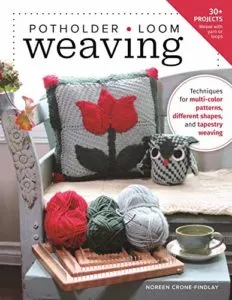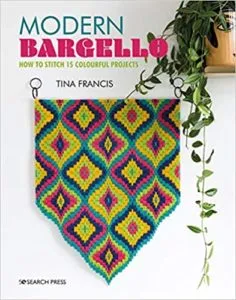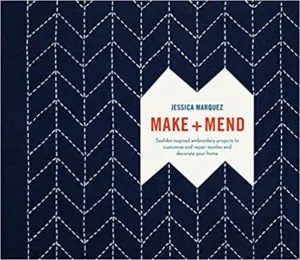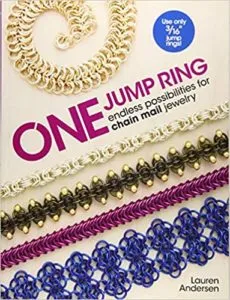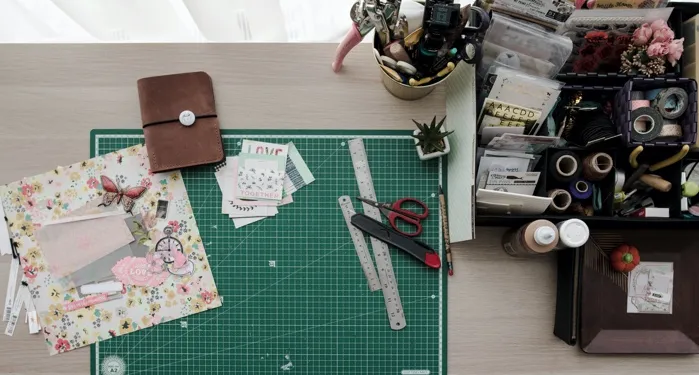
Pick Up a New Hobby Quickly With These Crafty Books
This content contains affiliate links. When you buy through these links, we may earn an affiliate commission.
Any craft takes a lifetime to truly master, but some have a gentler learning curve than others. If you, or perhaps some kids at home, are looking for easy crafts to learn but are short on patience, there’s still hope. Barriers to entry can come in all sorts of forms: the expense of equipment and supplies, the tolerance for frustration, the time until a rewarding object has emerged from one’s efforts. There is value in working through frustration, in delaying gratification, and in investing in your own growth. Balancing those values with a desire for activities to busy hands and minds with minimal aggravation can be done.
As a lifelong crafter and teacher, I’ve honed my sense for what people can learn relatively quickly. I’ve tested my theories on the teens I work with at my local library. No one will give you more honest—some might say brutal!—criticism than a pack of prickly teenagers. Knitting and crocheting are my go-to crafts, but for every teen who has shown me their wildly creative handmade hats and scarves, there are probably a dozen who put down their needles and hooks and walked away. For those teens, I still aim to provide opportunities for success and creativity within the world of fiber arts. If you or someone in your home has cursed a tangled skein of yarn, there may be another path. Take heart!
It is truly difficult to find a more satisfying craft than needle felting. Of the easy crafts to learn, it’s the easiest. You get to work out frustrations by stabbing something about a million times. There is little at stake with a needle felted object—it doesn’t really have to stand up to wear and tear or have any structural integrity beyond its ability to sit there and be cute. It’s easy to fix mistakes by either pulling off bits of wool or adding more on top. Perhaps best of all, you can have a finished object in an hour or two. If needle felting sounds fun to you, check out Woolbuddies.
I’m often in awe of these poster-sized, intricately detailed cross-stitched panels I’ve seen in my most dedicated crafty friend’s houses, but again, I can’t recommend starting with the project that is the equivalent of the ultra marathon. Floss and fabric are easy to obtain and relatively cheap, and tiny projects can deliver enormous delight. For these aforementioned tiny projects, you can’t find inspiration more minutely adorable than Mega Mini Cross Stitch.
If the counting in cross-stitch might get you down, embroidery is a great craft to try. The materials are similar. You can choose any fabric to embellish, including clothing you already own. It can essentially be doodling on fabric. If that idea intimidates you, or if you don’t think your shirts need to have the cool S embroidered on them, you can find kits with the patterns printed onto the fabric. For those who crave structure, embroidery can also be a soothing form of coloring in the lines. How to Embroider Almost Everything is a book that does what it says on the tin.
Kumihimo, an art of braiding, requires attention to detail, because one wrong cross of the threads will mess up the pattern. The simplest patterns are quick to learn, however, and this craft has been teen-tested. Simple braids are great for bracelets and lanyards, and a completed project can definitely take less than an hour. As with all of these crafts, the opportunities for improvement are endless, and kumihimo is extra amazing when beads get added to the mix. A great book for learning kumihimo is Twist, Turn & Tie 50 Japanese Kumihimo Braids.
Everyone loves a pompom! The loome, a delightful little multitool, is great for making pompoms, tassels, mini weavings, friendship bracelets, and more. If you’ve never thought about pompom design being something you can really spend time thinking about, have a look at the pompoms that look like eyeballs or pieces of fruit. Experience wonder. The best thing about the book Loome Party is that it comes with the loome!
I deeply identify with anyone who went through an intense phase of potholder weaving in their youth, and if you’ve longed for those days, there’s great news. Like an author writing in a constrained form to push their creativity, Noreen Crone-Findlay has gone deep on the potholder loom, and she’s shared that mystical wisdom with the rest of us. It’s in a book appropriately titled Potholder Loom Weaving.
Needlepoint on plastic canvas was the first craft I loved as a small child. My mom knew what she was doing: a blunt needle, cheap yarn, plastic canvas with holes that were easy to navigate with my clumsy little fingers. I made freeform creations then, but now I appreciate the groovy geometry of bargello designs. Again, one doesn’t have to start with big wall art when a little brooch is an option. The book Modern Bargello includes patterns large and small.
Mending is a wonderful activity to learn or teach young ones. If you value the things you own, if you value thriftiness and resilience, learn some creative mending techniques. Make + Mend uses techniques from a Japanese style of embroidery called sashiko, and shows that repaired textiles can be even more beautiful than the originals.
Sure, it’s not exactly a fiber art, but it can create a textile of sorts. This is a craft that can be pricier to pick up than most of the above, which is why I recommend One Jump Ring, a book with very pared-down material requirements. Chain mail (also commonly spelled called chain maille, for your searching purposes) is an ideal craft for someone who’s all in on epic fantasy novels and wants to feel like a knight. This book focuses on jewelry, but the techniques are the same for larger pieces. Today, a bracelet. Next year? Full shirt and coif.


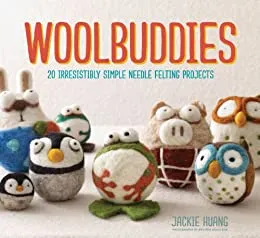
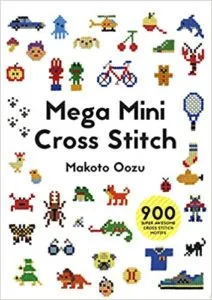 Cross-Stitch
Cross-Stitch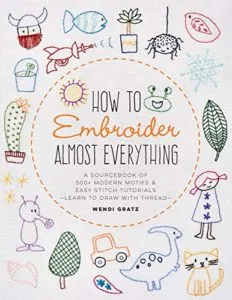 Embroidery
Embroidery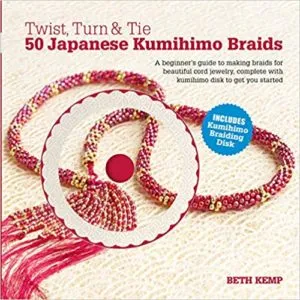 Kumihimo
Kumihimo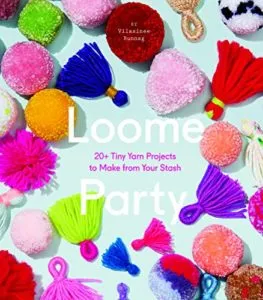 Loome crafting
Loome crafting